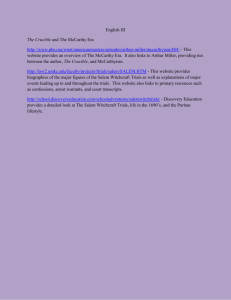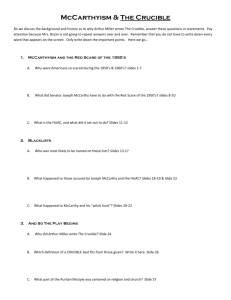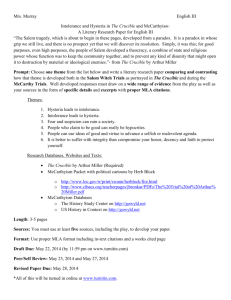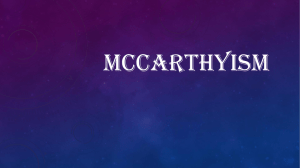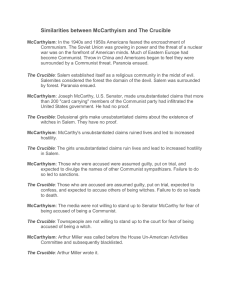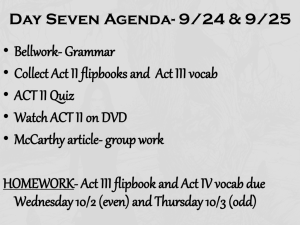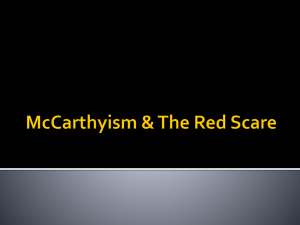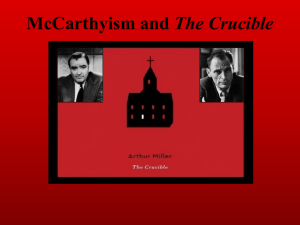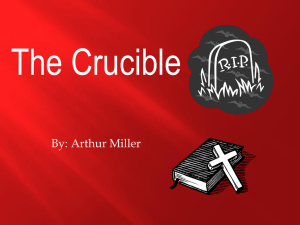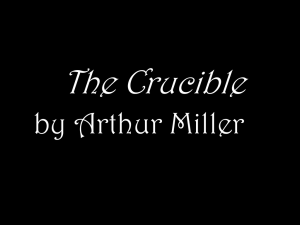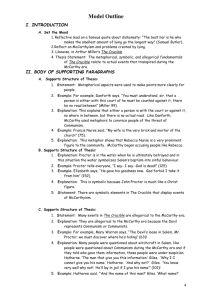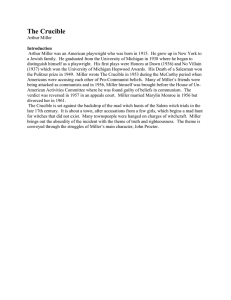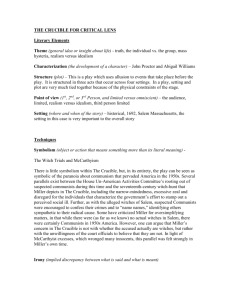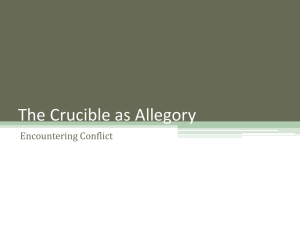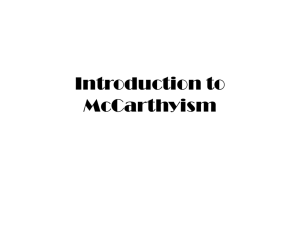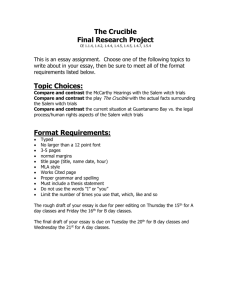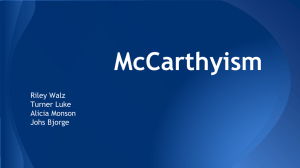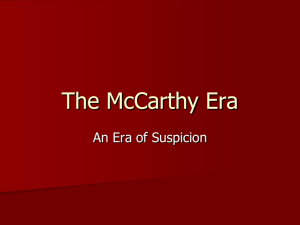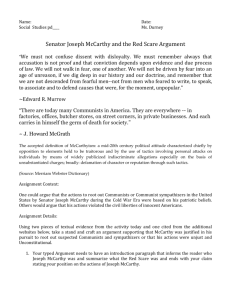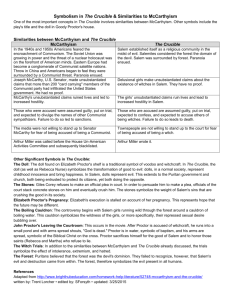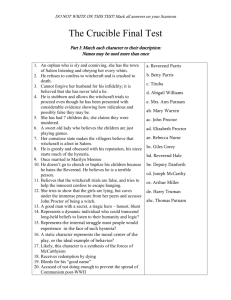Crucible Vocabulary
advertisement
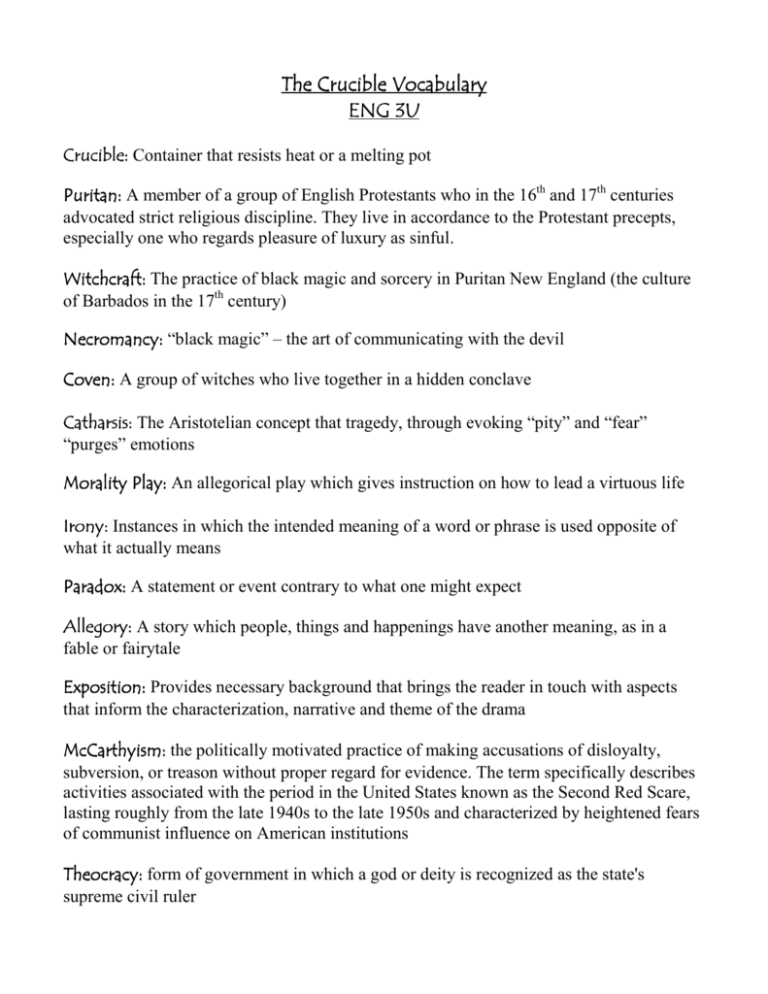
The Crucible Vocabulary ENG 3U Crucible: Crucible: Container that resists heat or a melting pot Puritan: A member of a group of English Protestants who in the 16th and 17th centuries advocated strict religious discipline. They live in accordance to the Protestant precepts, especially one who regards pleasure of luxury as sinful. Witchcraft: The practice of black magic and sorcery in Puritan New England (the culture of Barbados in the 17th century) Necromancy: Necromancy: “black magic” – the art of communicating with the devil Coven: Coven: A group of witches who live together in a hidden conclave Catharsis: Catharsis: The Aristotelian concept that tragedy, through evoking “pity” and “fear” “purges” emotions Morality Play: Play: An allegorical play which gives instruction on how to lead a virtuous life Irony: Irony: Instances in which the intended meaning of a word or phrase is used opposite of what it actually means Paradox: Paradox: A statement or event contrary to what one might expect Allegory: Allegory: A story which people, things and happenings have another meaning, as in a fable or fairytale Exposition: Exposition: Provides necessary background that brings the reader in touch with aspects that inform the characterization, narrative and theme of the drama McCarthyism: the politically motivated practice of making accusations of disloyalty, subversion, or treason without proper regard for evidence. The term specifically describes activities associated with the period in the United States known as the Second Red Scare, lasting roughly from the late 1940s to the late 1950s and characterized by heightened fears of communist influence on American institutions Theocracy: form of government in which a god or deity is recognized as the state's supreme civil ruler WitchWitch-hunts: Salem and McCarthyism Miller said of The Crucible, “I believe that the reader will discover here the essential nature of one of the strongest and most awful chapters of human history.” Miller was not just talking about Salem. He himself lived through a witch-hunt of a different kind. Some people feel that the play is just as much about modern American society and the witch-hunt known as the McCarthy era, as it is about 17th century Salem. The McCarthy Era In the 1940s and 1950s, when Arthur Miller was a young writer, America became obsessed with the fear of communism. The government wanted to defeat communism in Russia and stop it spreading to other countries. Even within America, there was a fear that communists were secretly trying to destroy the American way of life and were plotting to introduce communism. As fear and obsession grew, the American Senate, or parliament, started to pass laws to restrict the activities of communists. Senator Joe McCarthy was the main figure leading the anti-communist movement. Some of the things that happened when McCarthyism was most powerful include: A Committee of UnAmerican Activities was set up. People were “put on trial” by the committee and had to answer questions about their personal lives, friends, work and political beliefs. They were asked to name other people. They were “black0listed” (prevented from getting jobs) if they refused to appear, or if it was decided that they were communist. You could be labeled a communist if you had friends who were communists. 3 million names were passes on. This shows how fearful people must have been, to hand over the names of people they knew. It also shows how large the witch-hunt against communists was and how it gripped the whole nation.
